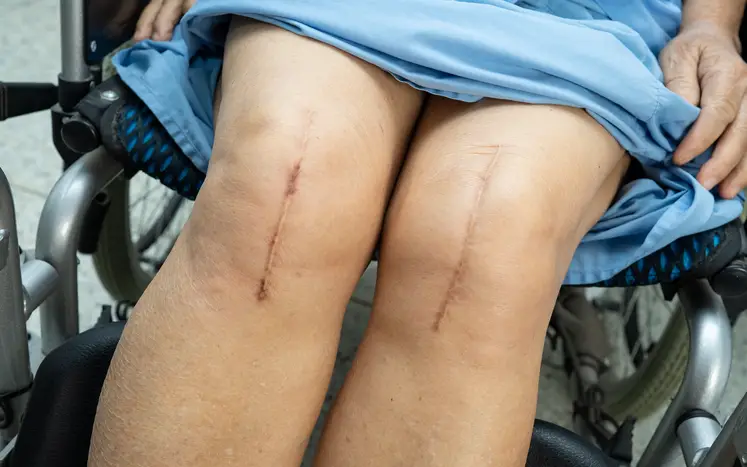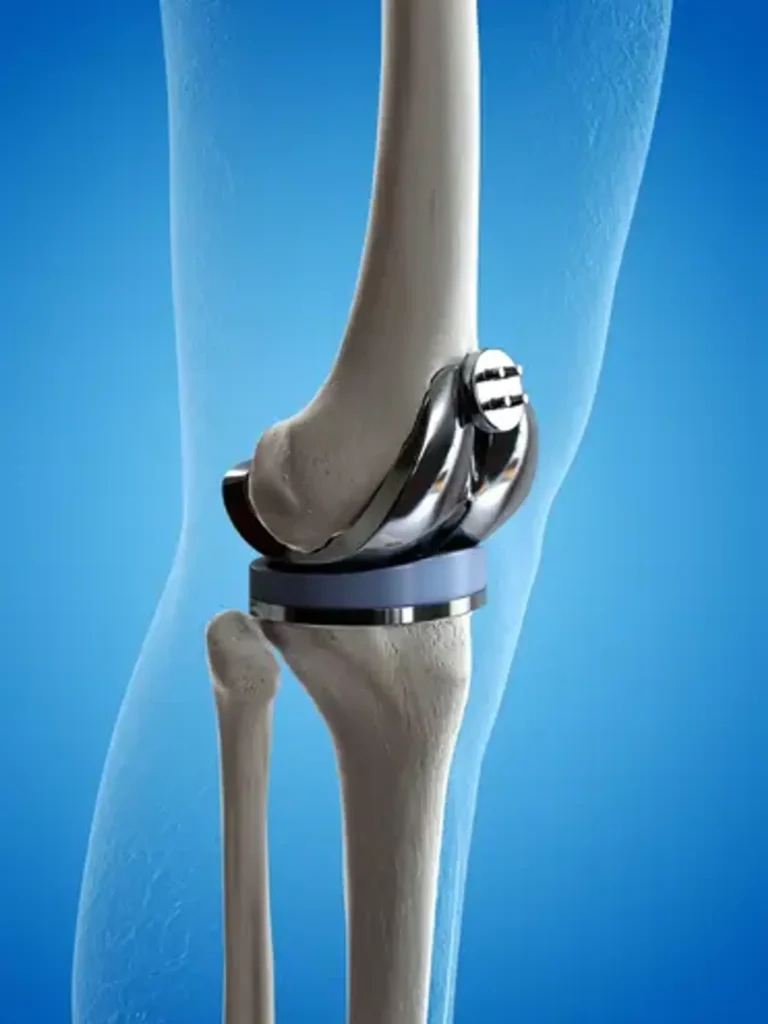
Complications with Knee Replacement Surgery: What Patients Must Know
Complications with knee replacement surgery are a real concern for many patients considering this procedure. While knee replacement has helped millions regain mobility and live pain-free lives, it’s important to be aware of complications with knee replacement surgery before going under the knife. These complications may arise during or after surgery, affecting recovery and overall success.
One of the most discussed topics is the risks of knee replacement surgery. These risks include infection, blood clots, implant failure, nerve damage, and anesthesia-related problems. While rare, these knee surgery complications can become serious if not addressed promptly. Infection is one of the most common complications with knee replacement surgery, especially in patients with weakened immune systems. It can occur at the incision site or deep around the artificial implant.
Another common concern is blood clots. After surgery, blood clots can form in the leg veins, leading to swelling and discomfort. In rare cases, these clots travel to the lungs, causing a pulmonary embolism — one of the most dangerous knee surgery complications. That’s why doctors often recommend blood thinners post-surgery.
Nerve or blood vessel damage during surgery is another issue that can be categorized under complications with knee replacement surgery. Although surgeons take utmost care, there’s always a small risk of accidental damage, which may result in numbness, weakness, or chronic pain. These complications are among the lesser-known but impactful knee replacement side effects.
Sometimes, the new joint may not align correctly, leading to misalignment or instability. This can cause long-term discomfort and poor function. One of the overlooked knee replacement side effects is the loosening of the implant over time. If the artificial joint fails or wears out prematurely, it may require revision surgery — a more complex and risk-prone procedure. All these factors contribute to the long list of complications with knee replacement surgery.
Patients may also experience persistent pain, swelling, or stiffness even after successful surgery. These symptoms are often classified as knee replacement surgery complications, although their severity varies from person to person. Allergic reactions to the implant material, especially metal components, can also result in knee replacement surgery side effects like inflammation or skin rashes.
Another serious risk involves improper healing. If the bone does not bond properly with the implant, the knee may feel unstable, painful, or may not support full body weight. This again falls under complications in knee replacement surgery and may demand further medical attention.
Despite all these potential problems, it’s important to understand that the vast majority of patients recover well and live active lives post-surgery. Being informed about the risks in knee replacement surgery and the possible knee surgery complications can help you make better decisions and take preventive measures. Always choose a skilled and experienced surgeon to minimize knee replacement side effects and ensure a smoother recovery.
In conclusion, knowing the various complications in knee replacement surgery, the risks in knee replacement surgery, and the common knee surgery complications and knee replacement surgery side effects can prepare patients for a realistic outcome and better post-op care.
What Are the Common Complications with Knee Replacement Surgery?
Though knee replacement is generally safe, there are known complications in knee replacement surgery that every patient should be informed about. These knee replacement surgery complications can range from mild side effects to more serious medical issues.
1. Infection – A Major Complication
Infection is one of the most serious complications in knee replacement surgery. It can occur near the incision or deep around the artificial knee implant. This knee surgery complication often leads to swelling, redness, pain, and sometimes fever. Early treatment is critical to avoid further problems.
2. Blood Clots – A Risk After Surgery
One of the significant risks in knee replacement surgery is the formation of blood clots. These clots may form in the legs (deep vein thrombosis or DVT) and can travel to the lungs, causing a pulmonary embolism. To avoid this knee replacement surgery complication, doctors may prescribe blood thinners and recommend light movement soon after surgery.
3. Implant Loosening or Wear
Another one of the long-term complications in knee replacement surgery is implant loosening or wear. This often happens due to aging, excessive activity, or improper alignment. It may cause pain and instability, and in some cases, require revision surgery.
4. Knee Stiffness – A Common Complaint
Knee stiffness is one of the most reported knee replacement surgery complications. This condition can limit movement and make it hard to bend the knee. Patients are encouraged to follow physical therapy exercises to overcome stiffness and regain full range of motion.
5. Nerve Damage – A Rare Complication
Although rare, nerve damage is another possible complication in knee replacement surgery. It may cause numbness, tingling, or weakness in the leg. In many cases, nerve function returns over time, but it can impact early recovery.
6. Persistent Pain After Surgery
Some patients continue to suffer from persistent pain, one of the more frustrating complications in knee replacement surgery. This may result from scar tissue, inflammation, or implant misalignment.
Knee Replacement Side Effects: What to Expect
In addition to complications, there are some common knee replacement side effects. These side effects are usually temporary and include:
- Swelling around the knee
- Mild to moderate discomfort
- Skin sensitivity in the operated area
While these knee replacement side effects typically improve within a few weeks, they are part of the healing journey after knee surgery.
How to Reduce Risks of Knee Replacement Surgery
To avoid complications with knee replacement surgery, patients should take post-surgical care seriously. Here’s how to reduce the risks in knee replacement surgery:
- Start physiotherapy early to prevent stiffness
- Keep the wound clean and dry to avoid infection
- Maintain a healthy weight to protect your implant
- Attend follow-up appointments to monitor healing

Consult Dr. Vivek Logani for Expert Care
To minimize complications with knee replacement surgery, consult Dr. Vivek Logani—one of the leading knee surgeons with extensive experience in managing knee surgery complications and reducing the risks of knee replacement surgery. His expertise ensures patients recover smoothly with minimal knee replacement side effects.
Book your appointment with Dr. Vivek Logani today for safe, reliable, and expert-led knee replacement surgery.